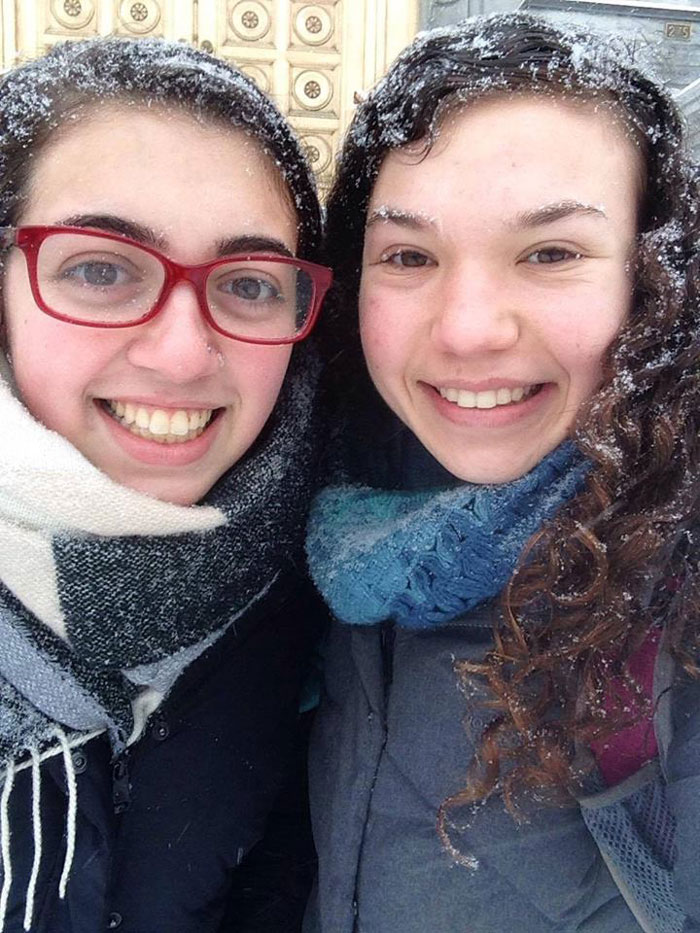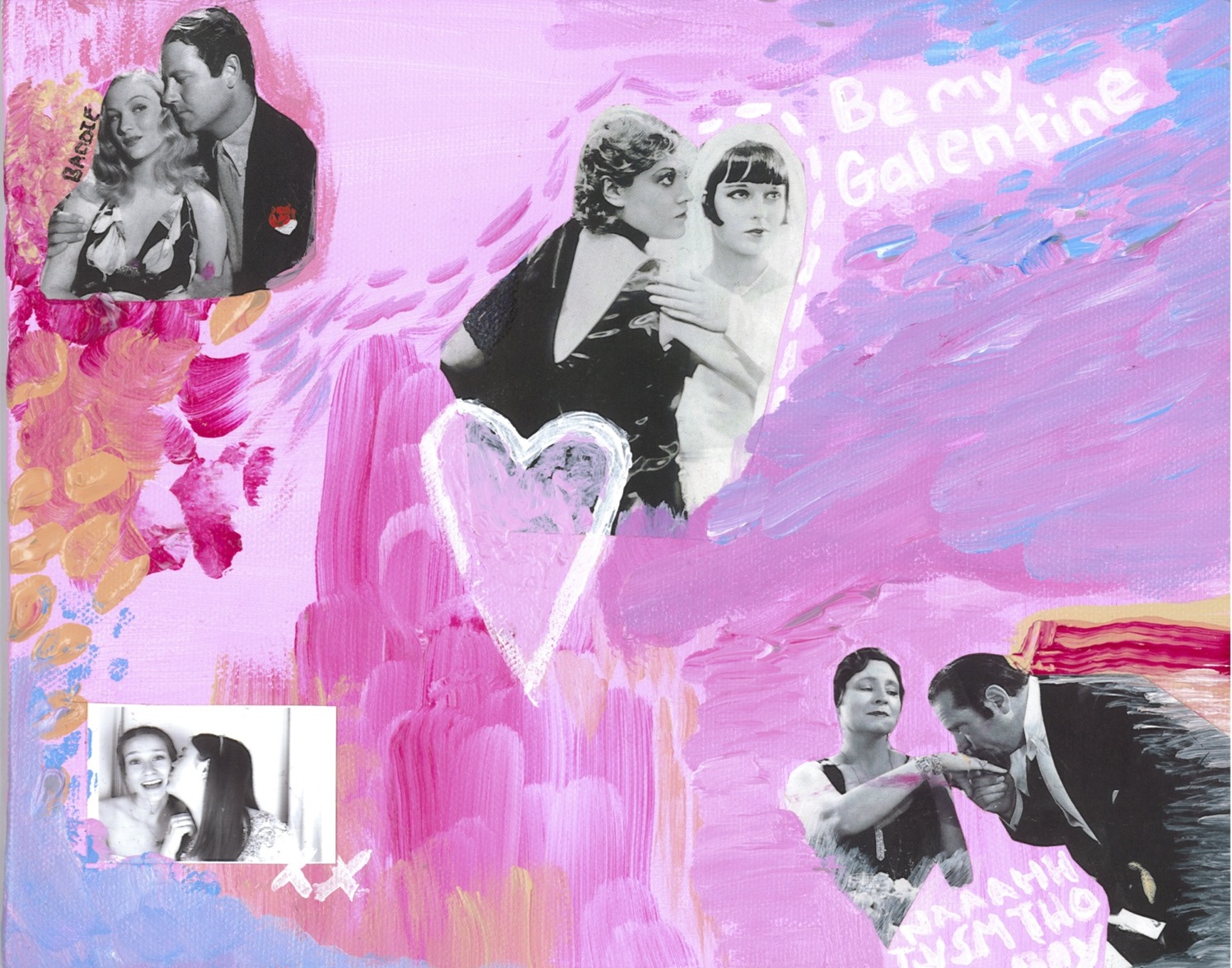Every year since the holiday’s inception in 2014, BFFs (best female friends) around the world have gathered together to celebrate Galentine’s Day on Feb. 13. This pre-Valentine’s holiday originates from the NBC hit-show Parks and Recreation, in which two lead characters, Leslie Knope (Amy Poehler) and Ann Perkins (Rashida Jones), celebrate their formidable friendship amid waffles, syrup, and the presence of beloved femme friends. The duo sparked a renaissance of appreciation and love among viewers for the women in their lives, leading fans to pick up the holiday practice themselves.
Celebrating friendships with fellow femmes is powerful. Because of the way women are socialized, it’s common for them to internalize misogyny without knowing it. This leads women to use the sexist ideals society promotes against each other, resulting in a malign and competitive mindset. Additionally, this mentality is most often unconscious, meaning women don’t realize they are complicit in sexism when they shame other women for their sexual history, claim that they get along better with men, or simply state that they are ‘not like other girls.’ The competition women subconciously feel toward other women is commonly pointed out in feminist literature, including in Roxane Gay’s essay, “How To Be Friends With Another Woman,” in which she explicitly lists her personal rules for maintain healthy friendship with other women. As such, showing gratitude for and giving support to fellow femmes is a radical, albeit sometimes difficult, thing to do. The power within femme friendships is often unrealized or underrepresented in the media, but it fills gaps that romantic relationships do not.
[metaslider id=50699]
In the McGill community, there are many who cherish their closest gals and who choose to celebrate them come Galentine’s Day. Sam Gibson and Marlee Nisenboim, both U1 Arts, are among the many students who break out the romantic comedies and sweet treats annually.
“Everyone has different types of friends, […] but you’re always gonna have one friend who’s your everything friend,” Gibson said, referring to her best friend, Nisenboim.

The duo have known each other since their first year of university, having met on the seventh floor of McConnell Hall. Gibson and Nisenboim grew close as chance landed them in the same sociology class, and they bonded through shared academic stress. Over the course of their first semester, they bonded and studied, realizing how like-minded they were after many late-night talks. They began to write music together, and even performed together; their personalities blended as harmoniously as their voices.
Though Gibson and Nisenboim have shared a smattering of tough times, the best friends’ relationship has grown to its strongest point, free of jealousy and judgment. When Nisenboim decided to take the semester off in Fall 2016, Gibson fully supported her decision. And when Gibson missed her best friend at school, Nisenboim made it clear that physical distance didn’t change anything in their relationship.
“Even though we weren’t together, nothing really changed in terms of being there for each other,” Nisenboim said, reflecting on their daily text messages and weekly phone calls over the course of the semester.
Gibson and Nisenboim exemplify the uniquely empowering nature of femme friendships in which women love and encourage each other. Friendship is a source of inspiration, a sentiment to which Sarah Binney and Melissa Langley, both U2 Arts, can relate. As best friends and fans of Parks and Recreation, they share a strikingly similar dynamic to the one between Leslie and Ann.

“I’m much more tightly wound than [Binney], and she’s really good at reminding me to have fun [….] Sarah is definitely Leslie. I’m definitely a Ben-Ann combo,” Langley said, making reference to the show’s main female characters and Leslie’s love interest, Ben Wyatt.
Binney and Langley grew up a block away from each other in Sharon, Massachusetts, but the two didn’t talk to one another until they found themselves carpooling to a McGill information session in Grade 12. Since arriving at McGill, the pair have grown close, having both lived in Douglas Hall their first year. Now well into their second year, they frequently find themselves discovering cafes on the weekends or cooking adventurous meals for dinner together. To them, their friendship is one of balance and support.
“There’s a lot of difficult things about being a woman, but the thing that’s most rewarding about it is that you get to support other women,” Binney said.
When it comes to women supporting other women, these best friends are on the same page: Always aiming to uplift each other, their friendship growing stronger as they do.
For Galentine’s Day, Binney and Langley made homemade brunch plans with their wider group of friends. Like Leslie and Ann, the goal was to eat the best breakfast food with the best of friends. For Binney and Langley, Leslie and Ann set a strong example of not only how to throw a successful Galentine’s Day bash, but of how to maintain a healthy friendship in their day-to-day life—an image that’s rarely portrayed in film and television.
“The strong female friendship is so underrepresented [in the media],” Binney said. “Leslie [Knope] is always expressing how much she loves her friends, and I really, really feel that way about my friends.”
Mutual love is present throughout these unique and radical femme friendships; love and be loved, support and be supported. Galentine’s Day is a breath of fresh air from the competitive social atmosphere between women, and serves as a reminder of the power of love between femme friends.









